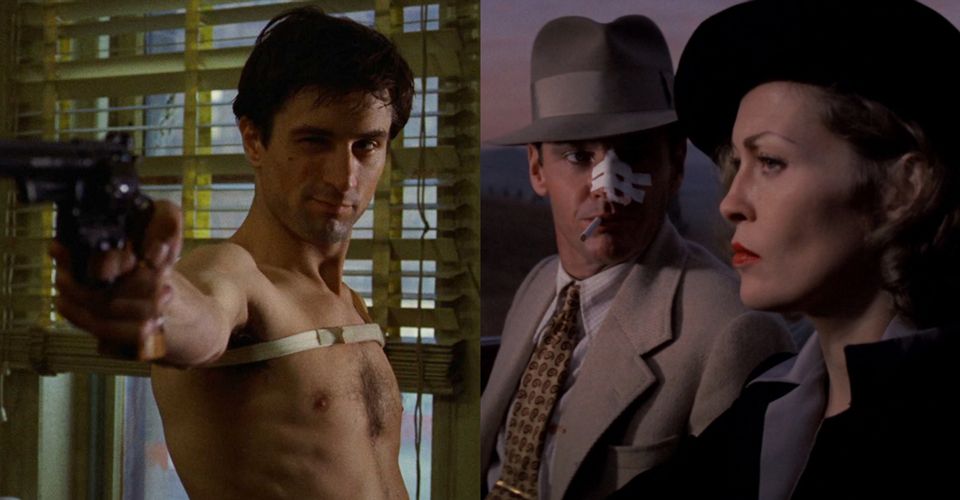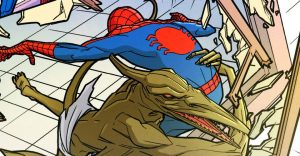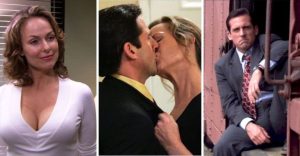Taxi Driver & 9 Other Neo-Noir Masterpieces

After the tropes of the film noir became rigidly defined and the genre died out, it got a second wind when New Hollywood directors of the 1970s updated it for modern times. The paranoia surrounding the Watergate scandal and the disillusionment created by the Vietnam War had led to an even more pessimistic national attitude and the neo-noir arrived just in time to reflect that.
Martin Scorsese’s Taxi Driver is a prime example of a neo-noir masterpiece, telling the story of a PTSD-riddled Marine who returns from Vietnam unable to sleep and fills his days and nights driving a cab through the crime-infested streets of New York, but there are a ton of others to enjoy.
10 Taxi Driver (1976)

Thanks to Martin Scorsese’s taut direction, Paul Schrader’s subtext-riddled script, Bernard Herrmann’s saxophone-heavy original score, Michael Chapman’s sumptuous visuals, and Robert De Niro’s captivating portrayal of an insomniac Vietnam veteran who works as a cabbie and is gradually driven to exact vigilante justice, Taxi Driver is one of the greatest movies ever made.
From the most awkward first date in film history to the intense humanity of De Niro’s improvised “You talkin’ to me?” monologue to the bleak, washed-out visuals of the gruesome climactic shootout, Taxi Driver is filled with iconic moments.
9 Pulp Fiction (1994)

When Quentin Tarantino was writing Pulp Fiction, his plan was to take familiar crime stories, like a mobster taking out the boss’ wife or a boxer being paid to take a dive, and then take drastic left turns along the way, like a heroin overdose or a sex dungeon kidnapping.
Featuring such A-listers as Samuel L. Jackson, Uma Thurman, and Bruce Willis in the cast, Pulp Fiction borrows from all kinds of movies, including film noir, spaghetti westerns, and even a little horror.
8 Blade Runner (1982)

Ridley Scott put a sci-fi spin on various conventions of film noir in adapting Philip K. Dick’s thought-provoking novel Do Androids Dream of Electric Sheep? for the big screen.
Harrison Ford stars in Blade Runner as Rick Deckard, a cop tasked with tracking down the androids that have assimilated themselves into human society in a near-future Los Angeles.
7 Point Blank (1967)

John Boorman’s Point Blank strips away all the pretense of a film noir and boils it down to its raw essentials: a compelling antihero, a violent story, and strong themes.
Lee Marvin stars as a mysterious man who is double-crossed and left for dead, then embarks on a brutal quest to retrieve the money that was stolen from him.
6 The Long Goodbye (1973)

By the time Robert Altman adapted Raymond Chandler’s revered mystery novel The Long Goodbye for the screen, plot elements like a hard-boiled private eye had become well-worn clichés, so screenwriter Leigh Brackett updated the story for the ‘70s.
Although the role of Philip Marlowe was made iconic by Humphrey Bogart in The Big Sleep, Elliott Gould’s take on the character in The Long Goodbye is unforgettable.
5 L.A. Confidential (1997)

Curtis Hanson’s film adaptation of L.A. Confidential takes place in Los Angeles in the 1950s and explores the intersection between the glitz and glamor of Hollywood and the corruption within the police department.
The movie revolves around three cops — one who does things by the book, one who ignores the book, and one who’s kind of a scumbag — as they investigate a string of murders.
4 Mulholland Drive (2001)

David Lynch initially conceived Mulholland Drive as a TV pilot, but due to its bizarre nature, he couldn’t get it on any major networks and retooled it as a movie. The result is a surrealist noir masterpiece.
Naomi Watts and Laura Harring star in the movie, each playing dual roles, and the meaning of the story is open to interpretation. The movie could take place across parallel universes, the whole thing might be a dream, it could be an abstract commentary on queer identities — part of Lynch’s MO is never providing fans with a definitive explanation of his movies.
3 Blood Simple (1984)

The Coens’ debut feature Blood Simple is a prime example of delivering genre thrills on a microbudget. The story sees a jealous husband hiring a PI to murder his wife and her lover.
From Frances McDormand as the cheating wife to M. Emmet Walsh as the sinister private investigator with ulterior motives, Blood Simple is filled with memorable performances, like any great noir.
2 Klute (1971)

The first part of Alan J. Pakula’s “paranoia trilogy” — and the only one produced pre-Watergate — Klute is a sharp neo-noir filled with fascinating subtext.
Donald Sutherland stars as a detective whose friend goes missing, while Jane Fonda steals the show as a sex worker — and the only lead in the case.
1 Chinatown (1974)

Robert Towne’s Chinatown script is one of the most perfectly crafted screenplays ever written, telling the captivating, decidedly dark story of a private eye played by Jack Nicholson who uncovers a harrowing conspiracy on his latest case.
Roman Polanski’s masterpiece was one of the early pioneers of the neo-noir genre, and one of the first movies to recontextualize tropes of the noir for a post-Watergate America.
About The Author


















